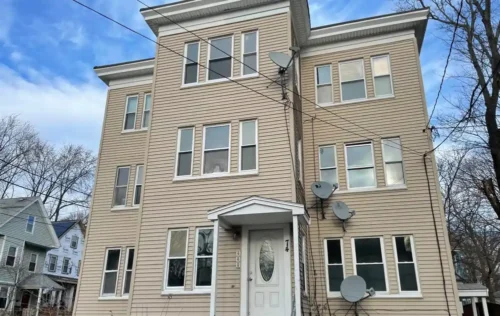
The following resources may be helpful for yourself, your family members, and/or the individual struggling with alcohol misuse. Living with an alcoholic partner often means facing a daily barrage of emotional challenges. You might be on the receiving end of verbal aggression – harsh words, criticisms, or humiliating comments, especially during times of heavy drinking. You’ve likely been through extensive back-and-forth with your spouse over this issue. Promises can be made – and even kept – for periods, but if you still find yourself asking if it’s okay to leave an alcoholic spouse, there has clearly been no long-term change. Alcoholism is one of the top three reasons for divorce, and it leaves a trail of problems in its wake.
- Talking to a mental health professional or someone you trust can help you work through these issues.
- Here at FHE Health, we are committed to providing treatment not only for alcoholics but also for the people who are closest to them.
- It is important to remember that you cannot help someone just by loving them or putting them first.
Divorcing an Alcoholic Husband: How to Protect Yourself and Your Kids
Deciding to leave is hard, especially considering all the things you’ve likely been through with your spouse. It won’t be easy, and you may have second thoughts about whether it’s the right decision. You may find that you’re spending all your time doing damage control at your job, with friends and family, or dealing with the fallout from the drinking. Sometimes when we try to rescue or fix those we see struggling, they cannot take responsibility for themselves. This frequently happens in codependent relationships with alcoholics. Most alcoholics want to get better and can see the negative impact their drinking has on those around them, and many will try to improve.
Know when to walk away from the relationships
Your partner might use guilt-tripping or gaslighting – making you doubt your own reality – to keep you in a state of confusion and dependency. In fact, it’s so common that 40-60% of people who’ve experienced violence from their spouse say that alcohol was involved. Behavioral changes from alcohol can see the loving, kind spouse you know turn into an angry, violent person you don’t recognize. Studies show that alcohol use can trigger intimate partner abuse and compound, aggressive tendencies. Yes, you can keep alcohol or other substances out of the house, but there are always other ways to obtain these substances.
#3 Their Behavior Is Unpredictable and Dangerous

While this may sound like an awful option, it is the decision that many people with alcoholic spouses choose. Sometimes it becomes difficult to separate the person they married from the person their spouse has become. If you’ve been covering up for your loved one and not talking about their addiction openly for a long time, it may seem daunting to reach out leaving an alcoholic for help. However, it’s important to make sure you’re getting the support you need as well. Lean on the people around you, and, if you need to, reach out to a mental health professional to speak about your stress and what you’re going through. Alcohol use disorders are chronic conditions, but many people benefit from treatment and ongoing recovery efforts.
- Dealing with the problem openly and honestly is the best approach.
- There are support groups that are made up of individuals in the same situation you are in.
- Effective budgeting, understanding insurance details, and exploring additional financial resources are essential for minimizing the financial burden of inpatient rehab.
- However, sometimes the actions you take out of love may be enabling your partner to drink.
- By taking care of yourself, you can navigate the challenges of living with an alcoholic spouse with greater strength and resilience.
- If you have an alcoholic spouse who is an authorized user on your credit cards, it’s time to remove them..
A key resource is the Substance Abuse and Mental Health Services Administration (SAMHSA), which provides resources and educational tools for those experiencing a substance abuse or mental health crisis. If you need help, SAMHSA’s national helpline is confidential, free, and available at any time. Beyond the financial impacts of child support and keeping them safe with protective orders, you may also have different needs than other divorcees when https://ecosoberhouse.com/ it comes to child visitation and custody. You may want specific rules and safety measures in place for handling visitation, especially if you believe that your spouse poses a risk to your children. Divorce is already difficult enough, but seeking a divorce from a partner who is an alcoholic may feel much more hopeless, stressful, and complicated. You may already feel overwhelmed by the specific difficulties impacting your family and your life.
Celebratory Holiday Drinking Can Be Deadly for Young Hispanics
Not true – their drinking behaviour is their responsibility not yours. Learn about the warning signs, how to spot a problem, and what you can do if someone… Living with an alcoholic is traumatic, especially if there is serious abuse. Having boundaries avoids co-dependency and sets limits for your loved one.
Alcohol addiction and domestic violence
- Eventually, your spouse may come to you and express an interest in recovery.
- However, these are some of the warning signs to look out for to know when it may be time to say no more.
- Today, experts see alcoholism as a spectrum of disorders that range from a mild drinking problem (alcohol use disorder) to a heavy drinker with severe alcohol issues.
- If you fear for your safety or worry that your children are in danger when your spouse is intoxicated, you have every reason to leave.
- You may worry about where you’ll live, their reaction to the news that you’re leaving or that they won’t be able to survive well without you.
The problem is that leaving is often the most dangerous time for people being abused. Because abuse is often about control, when the abused partner leaves, the abuser is triggered. If you’re leaving an alcoholic partner who is also abusing you, you may want to speak with a professional about the safest way to do so. If you’re living with an addict who doesn’t see their behavior as a problem despite severe consequences, it’s a red light. Once you have an alcohol dependency, it’s very hard to “just quit drinking” without help.

How to Hold a Family Intervention for an Alcoholic Spouse

